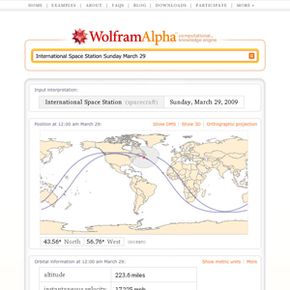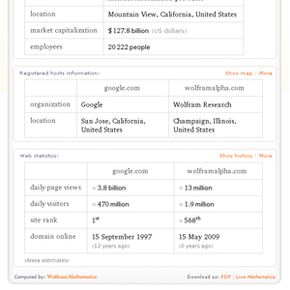On March 5, 2009, Stephen Wolfram wrote a post in his company's blog about a new product he'd been working on. It wouldn't be long, Wolfram wrote, before Wolfram Research would be releasing a new engine capable of answering questions written in natural language.
Search on the Internet is dominated by Google, at least in the United States. In March 2009, the company held 64.2 percent of the U.S. search market, followed by Yahoo's 15.8 percent and Windows Live's 10.3 percent [source: Nielsen Online]. Wolfram's announcement made headlines on tech Web sites. But if giants such as Yahoo and Microsoft can't knock Google off its perch, why does anyone care about Wolfram Research and its new Web site?
Advertisement
In truth, it's probably partially because people like the old David-and-Goliath type of story, where the little guy takes on the big guy and succeeds, despite impossible odds. But in this story, David's got a great big slingshot. In 1988, Wolfram Research released a piece of software called Mathematica, a highly respected program that helps people manipulate data in all kinds of ways. In creating Wolfram|Alpha, Wolfram Research found a way to manipulate data in users' questions and display results in new, creative ways. And because it's coming from a well-known and reliable source, people perked up their ears and listened when Stephen Wolfram made his announcement.
So just what is Wolfram|Alpha? What does it do,and is it any threat to Google?
Advertisement




